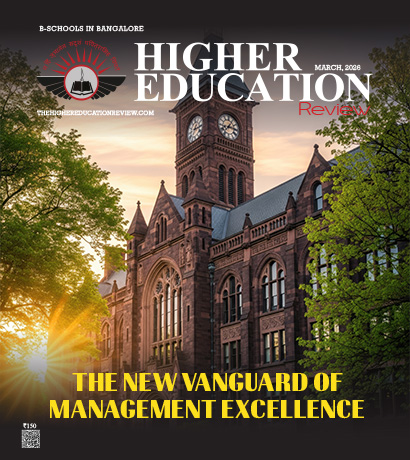IIT Indore Launches School of Innovation Offering BDes Program

- IIT Indore starts a full-time four-year BDes program in July.
- Students can specialize in urban systems innovation, healthcare systems, or sustainable energy systems.
- Admission is open to all streams through the UCEED entrance exam.
The Indian Institute of Technology, Indore (IIT-I), has inaugurated the ‘School of Innovation,' providing a four-year full-time Bachelor of Design (BDes) program, starting in July for the upcoming academic session.
The program includes basic and advanced classes in design, innovation, and system engineering with a focus on value creation and preserving the holistic approaches to delivering comprehensive solutions to pressing social problems in priority domains.
Suhas Joshi, director, IIT- Indore, said, "The School of Innovation represents IIT Indore's strong commitment to shaping the future of design-led education and research in India. We believe that innovation emerges at the intersection of disciplines, and this school will provide a unique environment where creativity meets technology and human-centred design. Through this initiative, we aim to nurture responsible designers and innovators who will tackle the most urgent societal problems of our time."
"We are excited to welcome the first batch of students and look forward to their contributions in building a more inclusive, sustainable, and innovative future for India and the world," Joshi said.
The effort is part of the National Initiative for Design Innovation (NIDI) program, launched by the education ministry to promote innovation, design, and creative solutions.
Also Read: Accenture, IIT Madras Partner to Skill Talent in SDV Domain
Admission will be based on the national level Undergraduate Common Entrance Examination for Design (UCEED), which is conducted every year by IIT Bombay for students from science, commerce, arts, and humanities.
Professor Avinash Sonawane, head of the School of Innovation at IIT- Indore, said, "The idea is to focus on different sectors and benefit them by innovations and designing. Modern tools and technologies will be used and taught to students to address social problems in priority sectors.”
In their first year, students will complete foundational courses, then from the second year, they will have specialization choices in urban systems innovation, educational technologies, healthcare systems, or sustainable energy systems.

